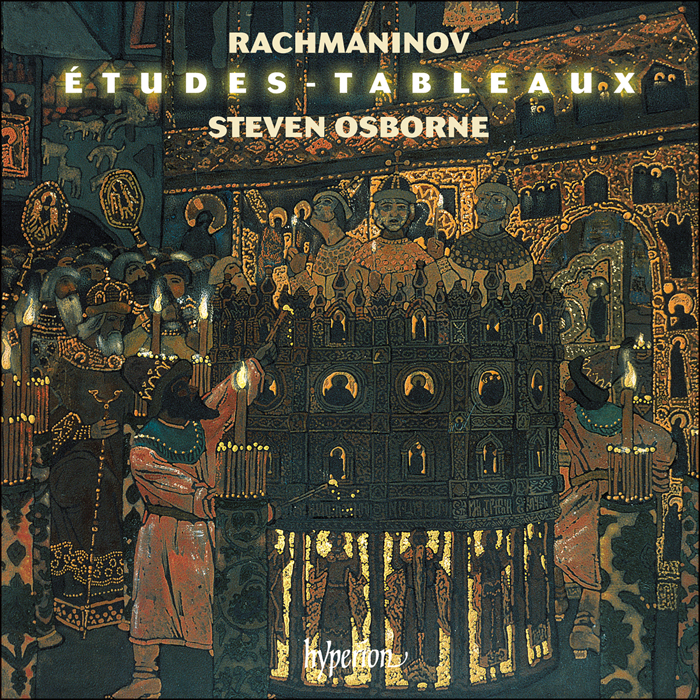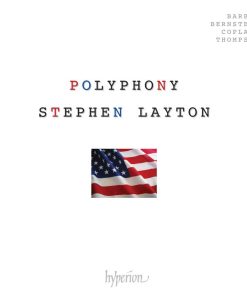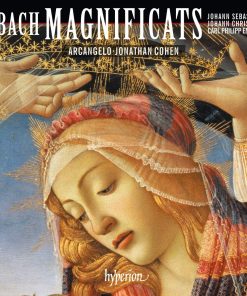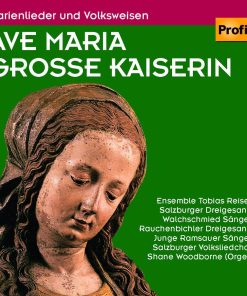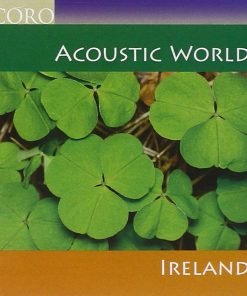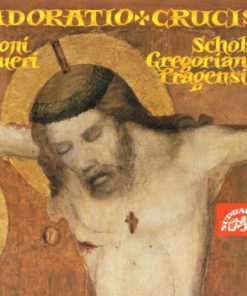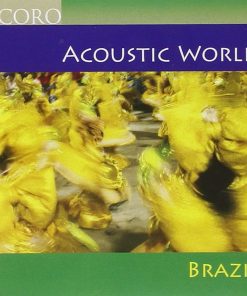Rachmaninov: Etudes-tableaux, Op.33 & 39 – Steven Osborne Hyperion
$ 20,99 $ 12,59
Steven Osborne’s thrilling new recording leaves no doubt of the Études’ unique position in Rachmaninov’s oeuvre. As brilliant as Osborne’s execution is throughout, it is his freshness of conception that, for me, is most striking. Naturally, every agogic, dynamic and tempo indication is scrupulously observed. On that firm foundation Osborne layers his inerrant rhythmic sense, chaste rubato, his seemingly infinite dynamic palette and, above all, his beautifully sculpted singing line … Rachmaninov fans won’t want to miss this; nor will connoisseurs of intelligent, meaningful piano-playing’ (Gramophone)

Études-tableaux Op 33[23’26]
1
No 1 in F minor: Allegro non troppo[2’40]
2
No 2 in C major: Allegro[2’13]
3
No 3 in C minor: Grave (Op posth.)[5’20]
4
No 5 in D minor: Moderato (Op posth.)[3’02]
5
No 6 in E flat minor: Non allegro – Presto[1’34]
6
No 7 in E flat major: Allegro con fuoco[1’39]
7
No 8 in G minor: Moderato[3’35]
8
No 9 in C sharp minor: Grave[3’23]
Études-tableaux Op 39[38’06]
9
No 1 in C minor: Allegro agitato[2’56]
10
No 2 in A minor: Lento assai[6’48]
11
No 3 in F sharp minor: Allegro molto[3’02]
12
No 4 in B minor: Allegro assai[3’37]
13
No 5 in E flat minor: Appassionato[4’49]
14
No 6 in A minor: Allegro[2’34]
15
No 7 in C minor: Lento lugubre[7’28]
16
No 8 in D minor: Allegro moderato[3’13]
17
No 9 in D major: Allegro moderato (Tempo di marcia)[3’39]
Steven Osborne, whose Rachmaninov has already been praised for its synthesis of ‘modesty, inner fire and virtuosity’ (The Observer) here turns his attention to the wonderful Études-tableaux. This is a major addition to Osborne’s discography, and repertoire in which he has few peers.
Fast Shipping and Professional Packing
Due to our longstanding partnership with UPS FedEx DHL and other leading international carriers, we are able to provide a range of shipping options. Our warehouse staff are highly trained to pack your goods exactly according to the specifications that we supply. Your goods will undergo a thorough examination and will be safely packaged prior to being sent out. Everyday we deliver hundreds of packages to our customers from all over the world. This is an indication of our dedication to being the largest online retailer worldwide. Warehouses and distribution centers can be located in Europe as well as the USA.
Orders with more than 1 item are assigned processing periods for each item.
Before shipment, all ordered products will be thoroughly inspected. Today, most orders will be shipped within 48 hours. The estimated delivery time is between 3-7 days.
Returns
The stock is constantly changing. It's not entirely managed by us since we are involved with multiple parties such as the factory and our storage. The actual stock can fluctuate at any time. Please understand it may happen that your order will be out of stock when the order is placed.
Our policy is valid for 30 days. If you haven't received your product within 30 days, we're not able to issue either a return or exchange.
You are able to return a product if it is unused and in the same condition when you received it. It must also still remain in the original packaging.
Related products
MUSIC CD
